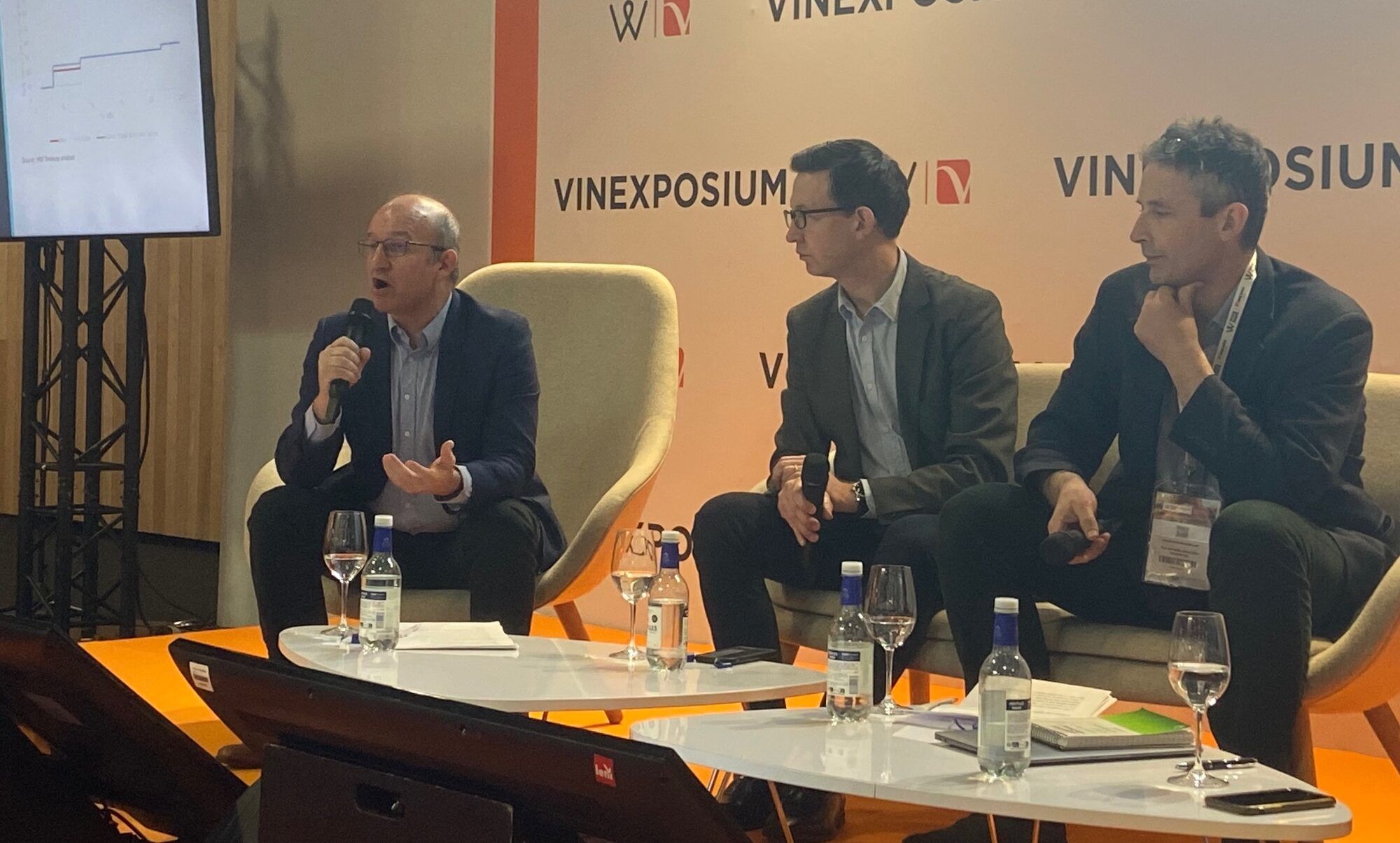The Wine Talks programme was part of a wide agenda of seminars, masterclasses and tastings at last month’s Wine Paris & Vinexpo Paris. Click here to find our more.
We have probably all done our fair share of chats, talks and debates on Zoom and wondered if we would ever get out of our respective little online boxes..
The Wine Talks at Wine Paris & Vinexpo Paris felt particularly refreshing, not just for the subject matters in hand, but the chance to get back to having a good old debate backed up by spontaneous questions from a live audience. The chance to put the ‘experts’ on the spot and not let them hide behind a reply on the Zoom “Chat” function.
It was also great to feel the raw passion in the room with panellists, particularly during the climate change session, willing to openly – and respectfully – disagree with each other on the right way forward.
Fixing the global supply chain
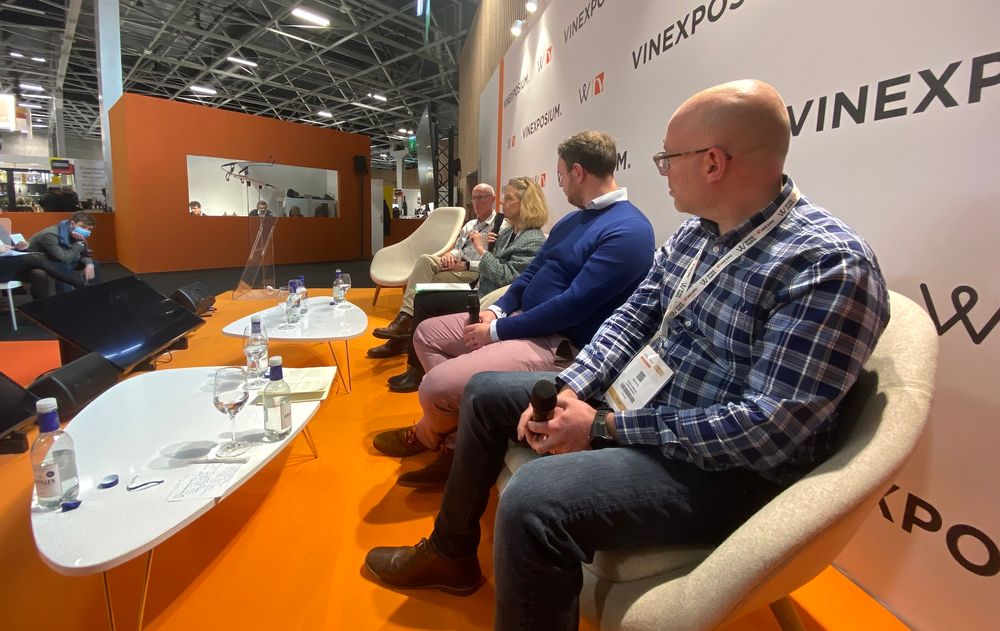
Laura Jewell MW, UK and EMEA head of Wine Australia, makes her case as part of the Wine Talks session on the global supply chain hosted by The Buyer
The one issue we can all agree on is the huge impact the slowdown in the supply chain continues to have on the industry as a whole.
Supply chain consultant Daniel Duggan from Ernst & Young was able to set out the global reasons why so much wine has simply not been in the right place. The global shutdown, he said, meant container ships were left high and dry in the wrong part of the world and as economies have recovered at different speeds it has had a knock-on effect on just where those container ships are in the global supply chain. Their scarcity means that even if you can find room on one, the cost of shipping has increased two to three times the usual going rate. Then you need to factor in the six to eight weeks delays in it actually going anywhere, he added.
This is also not just a wine issue, he stressed. But every consumer good is in same boat – or not as the case may be – and shippers are having to prioritise routes and market dynamics mean those willing to pay more can fast track their goods to the front of the queue.
The slowdown in the global supply chain means importers and retailers are having to work even closer with their suppliers to ensure shelves don’t go empty, said Dror Nativ, wine buyer at Marks & Spencer. He stressed how important it was he could have straight and honest conversations with its suppliers so that it could best manage the situation. Promises made, need to be kept. The best solution, he added, was to look at the long term and build contracts and systems that ensure consistent supply for months ahead rather than look for quick fix solutions.
It made sense, he added, to buy more wine in bulk and switch some supply to producers that can work on bespoke lines and exclusive contracts. A move that also makes sense as part of the retailer’s sustainability drive. Working more in bulk will give M&S greater flexibility in the wines it buys, ships and then bottles in the UK.
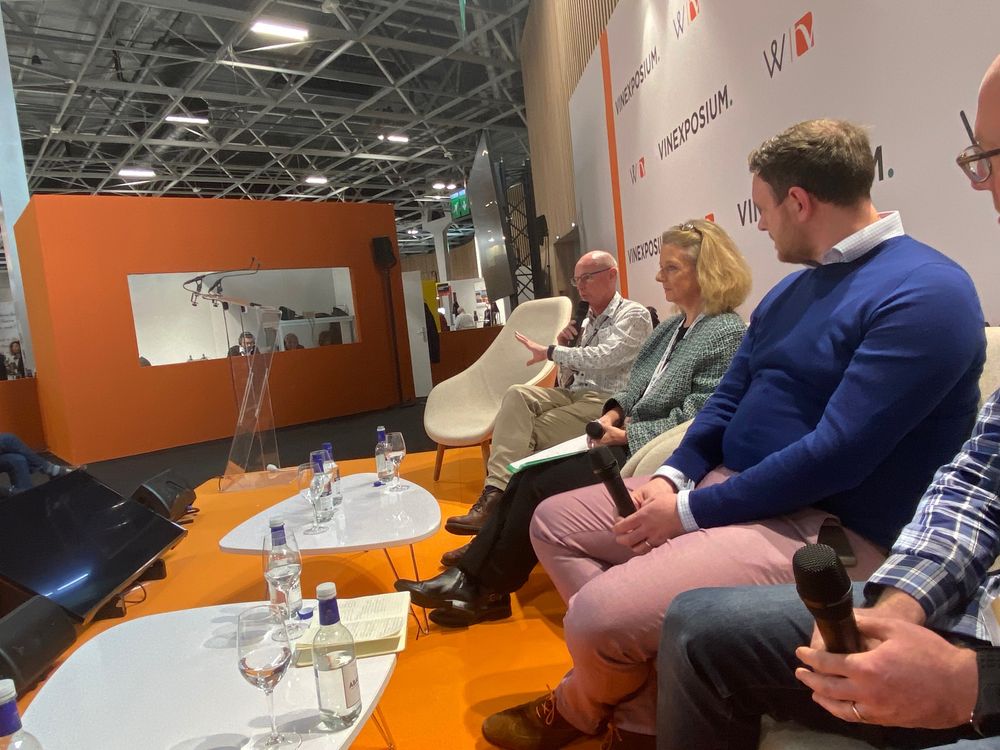
Kingsland’s David Gill MW said it is well placed to deal with supply chain issues
Which is certainly music to the ears of David Gill MW, specialist sales and business development manager at Kingsland Drinks that specialises in the mass movement of bulk wine around the world. In some respect there are always problems in the the global supply chain and the Kingsland sourcing and buying teams are always planning at least one harvest ahead to guarantee supply, he said. Only this year that has not been possible for some key markets as the wine simply has not been there to buy and sell.
For Gill it’s all about managing expectations and working with your end customer to see what alternatives can be found and how they can be fleet of foot enough to keep one step ahead of future buying needs.
That’s where working with third parties and generic bodies can help in putting buyers and sellers together, said Laura Jewell MW, UK and EMEA head of Wine Australia. Its role in the last year, she said, has been to use its on the ground knowledge and expertise to keep Australian producers up to date and, where possible, link up and make them aware of what opportunities might be out there.
Which with wine shortages in key producing countries, most noticeably France and New Zealand, has meant buyers and customers have been far more willing, sometimes out of necessity, to look at different options. Be it Australian Chardonnay in place of Marlborough Sauvignon Blanc, she added.
Nativ and Gill agreed the short harvests in key producing countries could not have come at a worse time for some countries. But their loss is another country’s gain and they both said how South Africa, in particular, has benefited thanks to large volumes of available fruit and great value for money.
Wine Australia has also worked hard to bring its producers and international buyers together at a time when neither can travel to meet each other face-to-face. Its breakthrough Wine Connect platform has provided an independent communications site where producers and buyers can meet and take conversations and trading opportunities offline to complete.
Climate debate
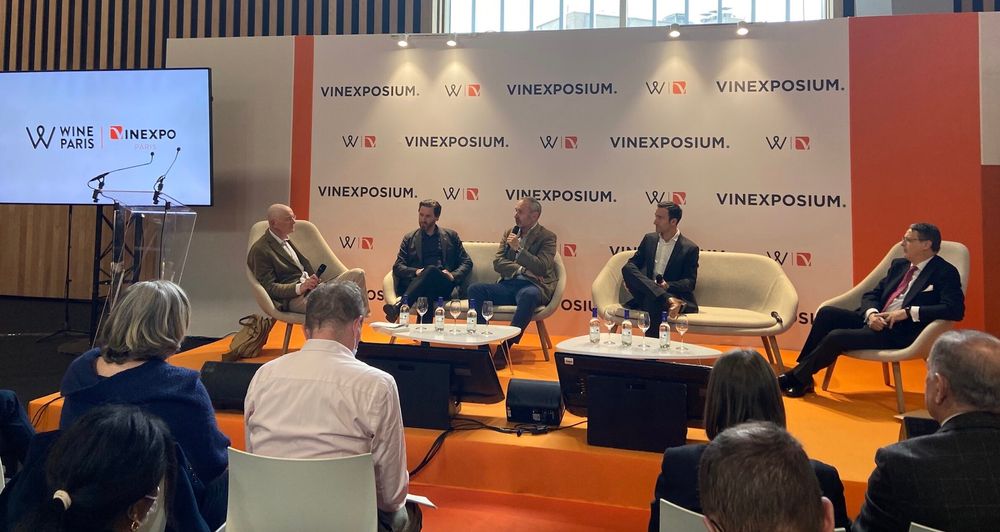
The climate change debate proved to be passionate and contentious
We are all going to have to get used to more bad harvests in the future as the changing climate means we are going to see a lot more ups and downs on the back of severe weather events.
The Wine Talks also featured a fascinating discussion about some of the steps producers and climate experts are taking to address the environmental crisis.
It featured insights from Stephen Cronk, founder of Maison Mirabeau in Provence, who spoke passionately about the huge role that regenerative viticulture farming could potentially have on keeping vineyards soils fresh and healthy. It will mean a different way of working, but any steps that can raise the water level and keep feeding the soils even in harsher climates has to be the way forward, he said.
Jeremy Cukierman MW, director of the Kedge Business School, agreed that regenerative farming was going to “be key” in how producers tackle climate change, but said it was hard to get an industry wide approach as it was just too fragmented and each country and region was facing its own particular issues.
But he echoed Cronk’s feelings that we “have to do something”. Cukierman added: “I believe we can fight climate change if we work together.
Climate clashes
The two clashed with Pau Roca Blasco, director general of the OIV, who questioned what real effective impact the wine industry could have on what is such global issue.
“What we can do is quite small compared to other industries,” he said. His argument was we can’t “can’t fight against climate change” in the sense of stopping floods and frosts happening, we can only “mitigate – but not so much”. He says we need to be preparing and “adapting” for a world “after climate change”. Even a global lockdown only reduced C02 levels by 5% to 7%, he added.
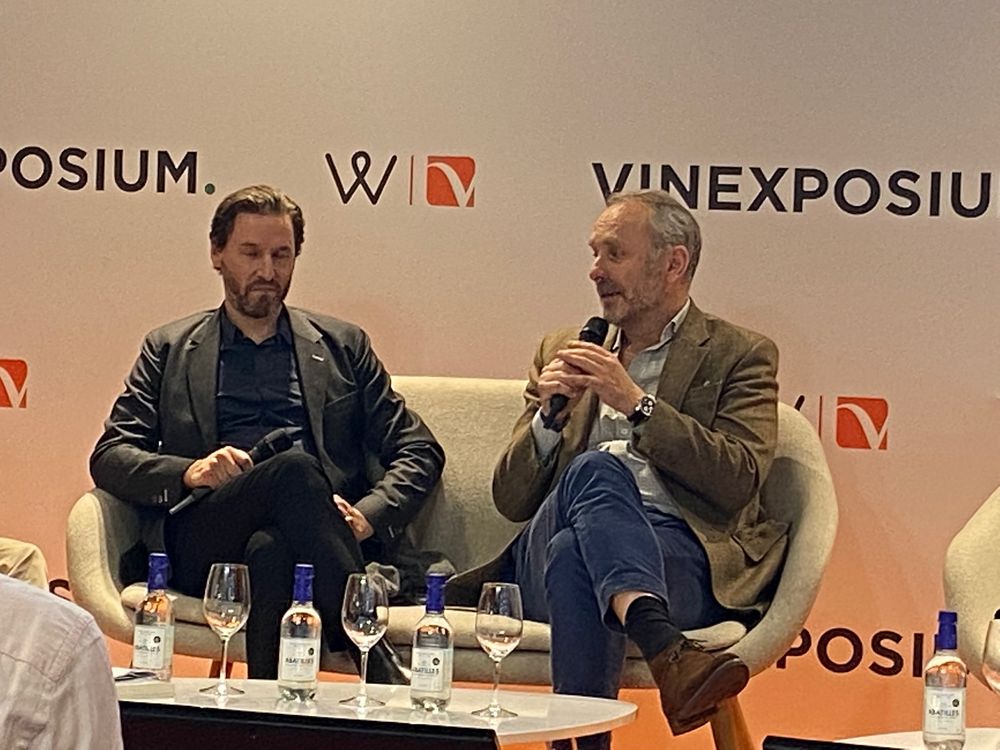
Jeremy Cukierman MW and Stephen Cronk spoke passionately about the need for everyone to do their bit to tackle climate change however futile it might seem at times
Cukierman took him to task: “It’s not helpful. We need to have hope. We are doing things to mitigate the impact.” He argued the wine industry had a huge role to play and to “shout loudly” about the steps it is taking. “We can be extremely important and influential to other agriculture sectors”.
Cronk equally disagreed with the OIV chief: “We must do our bit. Even if we reduce by just 1%. We need to do something.”
It was an issue producers are facing in their vineyards every day, stressed Cronk who shared how Mirabeau had felt the full force of nature having seen the majority of the 2022 harvest from its own estate wiped out due to wild forest fires. “We need to address this now,” he urged. “Fluctuations in temperature are going to be so hard to predict and manage.”
The key for winemakers in the future is the steps they can take to “delay harvests” so that they can ensure their grapes are right for picking, said Josep Maria Ribas Portella, climate change manager at Familia Torres, one of the leading players in the world on climate change action.
We are likely to see a big change in the grapes being planted in the future and a move away from what we see as being the big classic varieties of today, he added. It’s why Torres has invested so much in re-planting ancestral varieties that are far more heat resistant.
Torres, he added, was committed to setting the standards and measuring its results to hopefully act as a catalyst for others to follow – particularly through its work with the International Wineries for Climate Action on which Josep Maria Ribas Portella is a board member.
Duty challenge
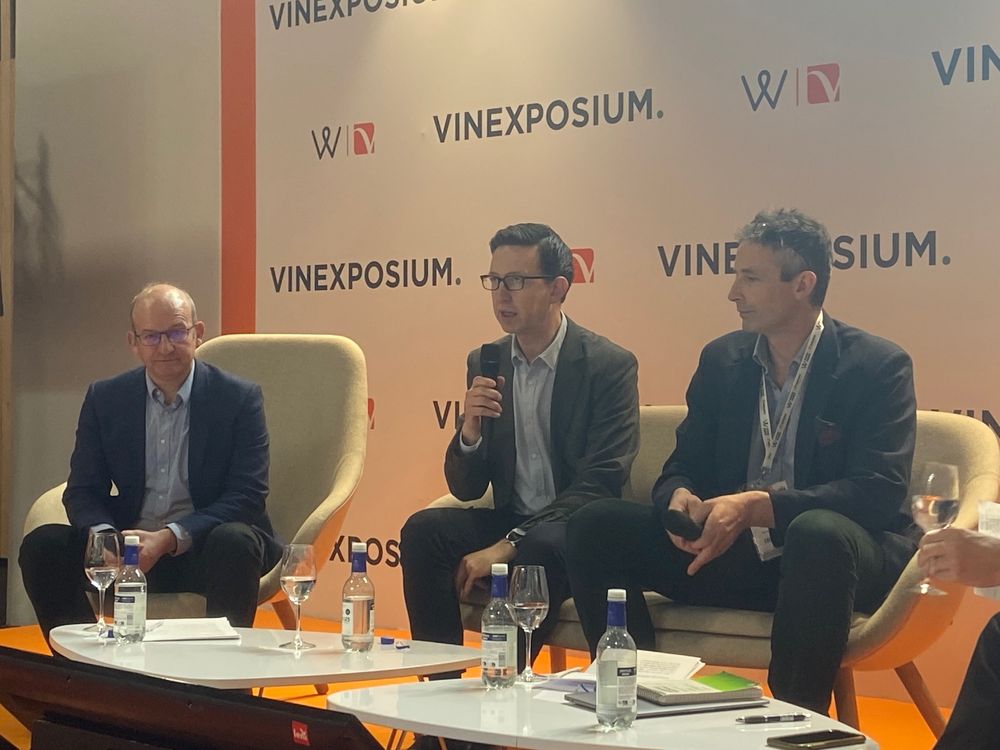
The WSTA’s Miles Beale was able to set out to international producers the ramifications for them from an over complicated proposed new duty system
There was an equally passionate debate on the potential impact the UK government’s proposed upheaval of the alcohol duty laws might have on the international wine industry.
The move to tax by alcohol strength could result in a seemingly unworkable 27 different tax bands for wines and spirits (13 for wine alone), warned Miles Beale, chief executive of the Wine & Spirits Trade Association. A far cry from the government’s pledge to make its new duty system “fairer and simpler” for all.
He was joined by Hal Wilson, owner of Cambridge Wine Merchants, who was able to give the independent retailer’s perspective on how damaging it would be to his business that is already facing increased administrative costs dealing with Brexit red tape.
“We would have a lot of issues trying to administer this proposed system,” said Wilson who told the audience he would be paying at least 10% more in tax under the proposed new rules. “This new proposal is very unwelcome. We are going from three rates of tax to potentially 27.”
Beale said the proposed changes were not all bad news as they would remove the current 30% tax levy on sparkling wine, but that was small comfort when you consider every wine above 11.5% could potentially become more expensive. Which hardly seems fair when the duty being claimed on beers and ciders remains the same and wine is facing a further duty bill of around £250m.
Justin Howard-Sneyd, director of Hive Wine Consulting, would be directly impacted as a wine producer in France of Domaine of the Bee wines. He fears these rules are being made to appease the noisy and powerful UK beer and cider lobby and is effectively “sneaking” a tax hike on wine as a result. “The government claims to be making alcohol duty fairer or simpler, when it is clearly not fair to wine, and certainly not simpler,” he said.
The new duty rules would also strip out any of the advantages that would come from the free trade deals with Australia, and now New Zealand and the removal of EU wine tariffs. A fact that might make for some uneasy conversations around the Cabinet table between the Treasury and the Foreign Office. Its why Beale and the WSTA is working closely with wine bodies in Australia to push this issue strongly with the Australian government. “That’s where we might make a difference,” he added.
So what’s the solution? Well, rather than simply argue against the government proposals the WSTA has presented an alternative solution that allows it to collect the same level of alcohol duty.
Its idea is to set one tax rate at 12% for all wines between 8.5% and 15%. A system that would tick both the ‘fairer’ and ‘simpler’ boxes and also allow the government to stay true to its pledge to have an alcohol duty system based on abv strength.
“If they did that then the modelling we have done shows their tax revenue would not fall and there would be much less of an administrative burden to deal with,” said Beale.
How heavy?
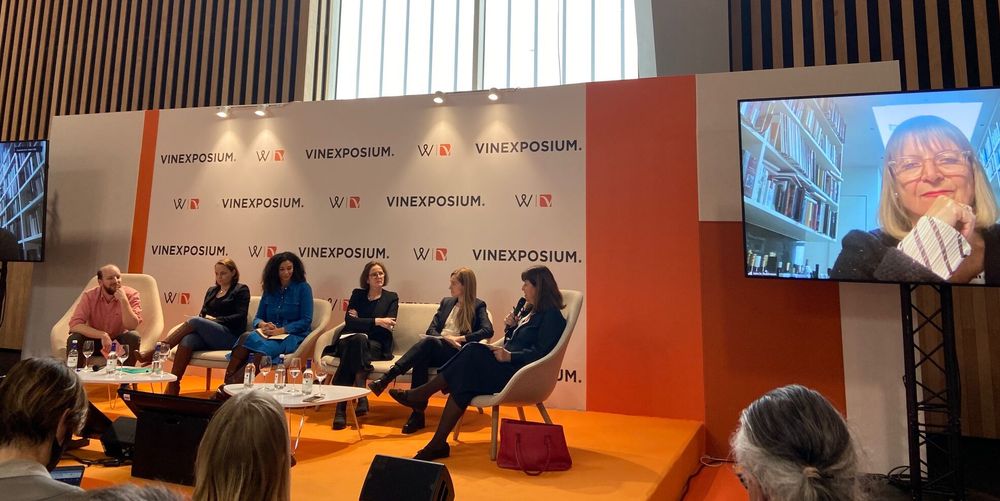
The Wine Paris & Vinexpo Paris debate on heavy glass bottles with Jancis Robinson MW beamed in via zoom
The other key Wine Talk that took place at the fair included a fascinating discussion exploring the issue of glass bottles and, in particular, the future of heavy glass bottles and what credible alternatives their might be to glass packaging, particularly for more entry level wines. It was an opportunity for the glass manufacturers to put their counter arguments and explain the steps they are taking to reduce their carbon footprint. But it showed how quickly the momentum is changing and how open the trade is to not just talking but taking action on heavier bottles that are becoming hard to justify.
An issue that has was first picked up and highlighted by Financial Times’ wine columnist Jancis Robinson MW and then more recently by influencer, Aleesha Hansel, with her social media-driven petition to call for the removal of heavy bottles that attracted support from right around the world.
Robinson was able to set out her case, using evidence from the Swedish monopolies on how much bigger glass’s contribution is to carbon emissions compared to other packaging formats.
The speakers were:
- Jancis Robinson MW: Wine writer (joined by video link).
- Aleesha Hansel: Wine writer.
- Oliver Lea: Co-founder and MD BIB Wine and co-founder Wine Traders for Alternative Formats Organisation .
- Sophie Wolff: Assistant director, Adelphe.
- Adeline Farrelly: Secretary general of the European Container Glass Federation (FEVE).
- Melianthe Leeman:Global marketing director wine & spirits, O-I Glass.
- Chaired by Anne Burchett
Dr Jamie Goode also hosted a session on the future of international viticulture, exploring the different choices available to winegrowers with:
- Gerard Bertrand: Wine producer.
- Robert Eden: Co-owner of Château Maris & head of organic wines at Cordier .
- Anne Laure Ferroir: Director of Fédération Nationale Terra Vitis.
- Marc Thibault: Winemaker and c0-owne of Domaine de Villargeau in the Centre-Loire.
- The Wine Talks will be available to watch on the Vinexposium plafform that manages Wine Paris & Vinexpo Paris in the coming days. You can catch up on all the other activities that took place at Wine Paris & Vinexpo Paris here.
